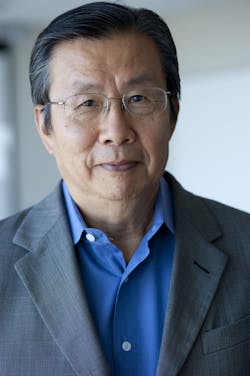
How do you deal with hiring a superstar engineer who wants a super-high salary to match?
Most of us would like to see what we earn tied directly to what we produce. Unfortunately for engineers, salaries are based more or less on “grades” even though differences in productivity can be in multiples. If you pay what this person demands, it is likley that everyone else in the company would want a raise since this individual has yet to prove his or her productivity in your company. So, you have three options: pay the person a high salary and run the risk of having a palace revolt; offer the individual a nominal wage and not be able to recruit the individual; or hire the individual at a nominal salary with a potential upside based on his or her actual output. With the last option, you still run the risk of not being able to recruit that individual but at least you’ll have the comfort of knowing you have spared yourself a prima donna.
A company wants us to develop a special laser for OEM application and to transfer the technology to them. As a small company, what are the considerations in deciding whether I should do it?
This question illustrates that sometimes you just have to say no to avoid doing the wrong thing. I am assuming this company will pay NRE (nonrecurring engineering charges) to develop the product. Logically they should gain some rights to what they pay for. From your standpoint, this makes you effectively an R&D company selling your brainpower without much upside. Once the volume becomes substantial, the company will likely develop multiple suppliers to drive the prices down, which would keep you in the poorhouse. There are also opportunity costs-the other things you could have done if you had not taken on this job. The likelihood is you may be able to spend the same level of energy on your current business to reap longer-lasting benefits. So the question for you to answer is “are they paying me enough NRE?” In addition, you should not underestimate the effort, which invariably occurs because of the natural optimism of most entrepreneurs.
You could easily rationalize taking this job based on short-term benefits, such as new technology and business insights, profits from incremental sales, and cost advantages from economy of scale. It is also possible that these benefits may strengthen a competitor if you don’t get the job. My experience is that these benefits in reality don’t usually add up. My suggestion is that you should refuse to give up any IP (intellectual property) rights. The NRE would give the customer the product and perhaps some limited exclusivity for that specific product over a limited time period. And you should consider yourself lucky if they weaken a competitor.
How does a technologist working for a government lab transition smoothly into the commercial world?
It is hard to generalize, but I suppose it is not unlike any kind of transition-it should be done over time, in phases, and with good planning.
The first step is to land a job at a commercial company. At an extreme, let us assume you want to get into consumer products. You can make the transition less drastic by a gradual transition: first work for an aerospace defense company, then an industrial company, and finally a consumer products company. And if you are a technologist getting into marketing, then you can first join a marketing organization as their technical guru while you learn the professional skills of marketing and sales. You can speed up the process by earning an MBA degree, either going full time or part time while you are working. You can get a heavy dose of how the business world works and in the process gain the credibility to land yourself the job you want all in one swoop. The good news is we engineers are trained to be good at anything if we put our minds to it.
About the Author
Milton Chang
MILTON CHANG of Incubic Management was president of Newport and New Focus. He is currently director of mBio Diagnostics and Aurrion; a trustee of Caltech; a member of the SEC Advisory Committee on Small and Emerging Companies; and serves on advisory boards and mentors entrepreneurs. Chang is a Fellow of IEEE, OSA, and LIA. Direct your business, management, and career questions to him at [email protected], and check out his book Toward Entrepreneurship at www.miltonchang.com.
